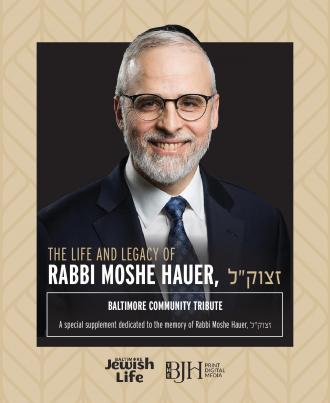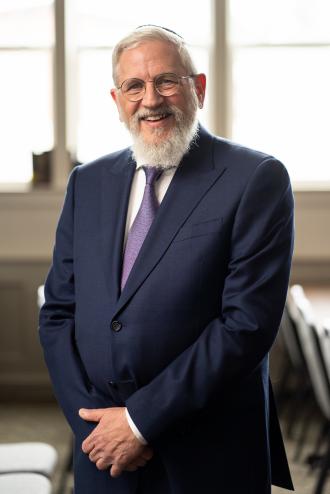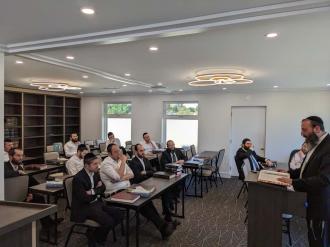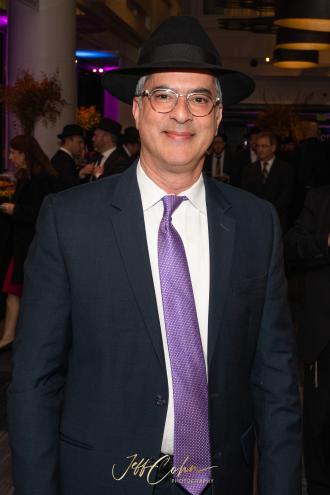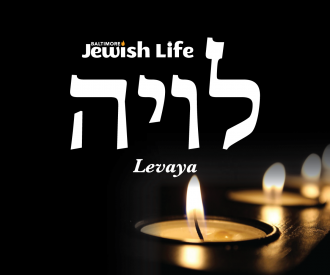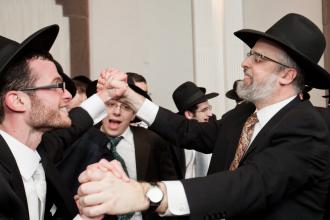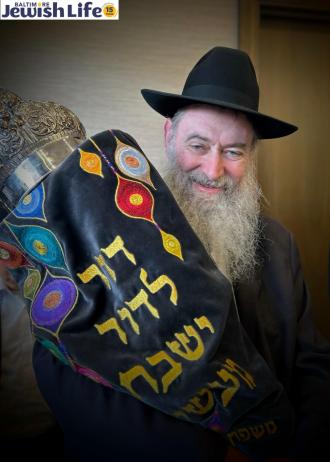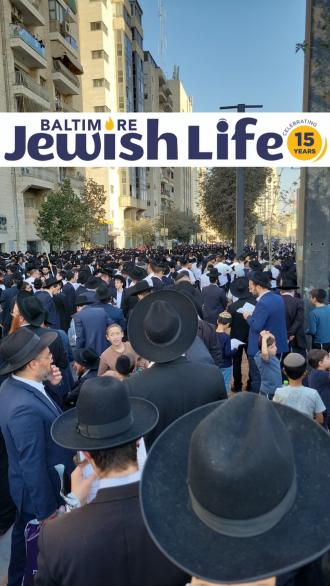On the first of Nissan, the eighth day of the inauguration of the Mishkan, the two children of Aharon, Nadav and Avihu, died.
Moshe tells Aharon that on this day ‘the glory of Hashem’ נראה אליכם — will appear to you.
The Rosh points out that these two words נראה אליכם allude to אהרן and מיכאל, each one sharing the exact same letters in these two words. נראה = אהרן, אליכם = מיכאל]]
Michoel is the ‘great angel’ who offers Korbanos on the Mizbeach (in the Mikdash in Heaven).
Tosafos says that he offers the ‘souls’ of the צדיקים — the righteous, upon high. These are the אִשֵי ישראל — the ‘prominent people’, we appeal each day in Shemoneh Esrei for G-d to accept favorably on our behalf. (מנחות קי.)
Many great sages suggest that on this day of the inauguration of the Mishkan below, and its counterpart on high, Aharon offered animal sacrifices, whereas Michoel brought the souls of Nadav and Avihu to the Altar above. (בית אברהם סלונים-ברנוביץ ועוד)
Although these venerated and holy souls ascended as offerings and atonement for the nation, nevertheless we are taught that they were taken to task for a slight flaw they possessed. G-d implements his measure of judgment more exactingly to those closest to Him.
There are many suggestions as to the exact nature of the sin that they committed that unleashed this measure of judgment at this time. But we are taught that they had already been deserving of punishment at the time of the giving of the Torah at Mount Sinai, but G-d did not want to disturb the joy of the giving of the Torah and held off until the inauguration of the Mishkan.
The Torah there describes how, ‘They saw the G-d of Israel... Against the great men of the Children of Israel, He did not stretch out His hand — they gazed at G-d, yet they ate and drank.’ (שמות י-יא)
The simple understanding of this verse is that they evidently had experienced a sacred vision while irreverently indulging in food and drink. As Rashi quotes from the Midrash Tanchuma, ‘They gazed at Him with levity, while [they were] eating and drinking.’
Rashi then adds that ‘Onkelos, however, did not render [this clause] in this manner’, without quoting the Targum.
The Onkelos translates, 'they saw the glory of Hashem, and rejoiced over their offering being accepted by G-d, as if they had eaten and drank.’
Most commentators understand the Onkelos as disagreeing with the Tanchuma, with the Totrah reporting that there was no frivolous indulgence, on the contrary, they were experiencing an ecstatic spiritual high that was equivalent to a delicious meal.
Perhaps, Rashi is not intimating that Onkelos argues on the negative nature of their behavior, as much as he is interpreting their failure differently.
Isn’t it strange that the Onkelos describes the ecstatic spiritual pleasure they experienced in terms of ‘eating and drinking’? Is that the most exquisite of pleasures? Can any temporal delight approximate the joy of these great and accomplished scholars’ spiritual enrapture?
When one experiences physical pleasure there is a point where one must stop. No physical joy is constant. We eat, enjoy, get full and satisfied, then wait until the hunger comes back. And so it is with every worldly pleasure.
With Torah and mitzvos it is not supposed to work that way. We must never be satisfied or smug with our accomplishments. We may be happy, but always thirsty for more. We may regale in our achieving milestones in our journey, but we must always remain craving for more, striving to go higher.
When Nadav and Avihu were ‘satisfied’ with their offering being accepted and the vision it prodded, as with food, it reflects on a flaw, as subtle as it may be, in their service of G-d.
The first Rebbe of the illustrious Sadugra dynasty, Reb Avraham Yaakov Friedman, offers a brilliant interpretation on the statement of Rav who was accustomed to say, “The World to Come is unlike this world — there, there is no eating or drinking, reproduction, business, jealousy, hatred or competition; Tzaddikim — the righteous, sit with עטרות בראשיהם — crowns on their heads and enjoy the Shechinah — the Divine Presence...” (ברכות יז.)
The wording is inaccurate. עטרות בראשיהם more accurately translates as crowns either in or with their heads. On their heads would be על ראשיהם.
He suggests what it is teaching is that the only way one merits these crowns, which represent achievement in the World to Come, is by living every moment on this earth with a sense that one is still only בראשיהם, at the very ‘beginning’ of his journey, at the starting line.
His father the holy Rhizyner, Reb Yisroel Friedman, observes this very same idea in a line from the Yotzrot that many recite on Parshas Parah.
לטהר טמאים לטמא טהורים אומר קדוש —To cleanse the contaminated and to contaminate the pure, through the word of the Holy One
He suggests the following alternate translation:
לטהר טמאים — G-d purifies those who consider themselves impure, knowing they still have much more to achieve and grow.
לטמא — G-d deems though impure, טהורים אומר קדוש — those who view themselves as pure, saying they are holy!
We are still mourning over the loss of the beloved ‘Reb Chaim’ whose incessant devotion to Torah learning was never perceived as mere duty, but rather a quenchless thirsting to discover deeper aspects of Torah.
May we each never be satisfied in our quest to grow spiritually. May we never say we reached the finish line. We must relish each moment of opportunity in this physical world to acquire crowns of ecstatic joy that can only be had if we see each moment as a new and fresh start for more growth.
באהבה,
צבי יהודה טייכמאן

